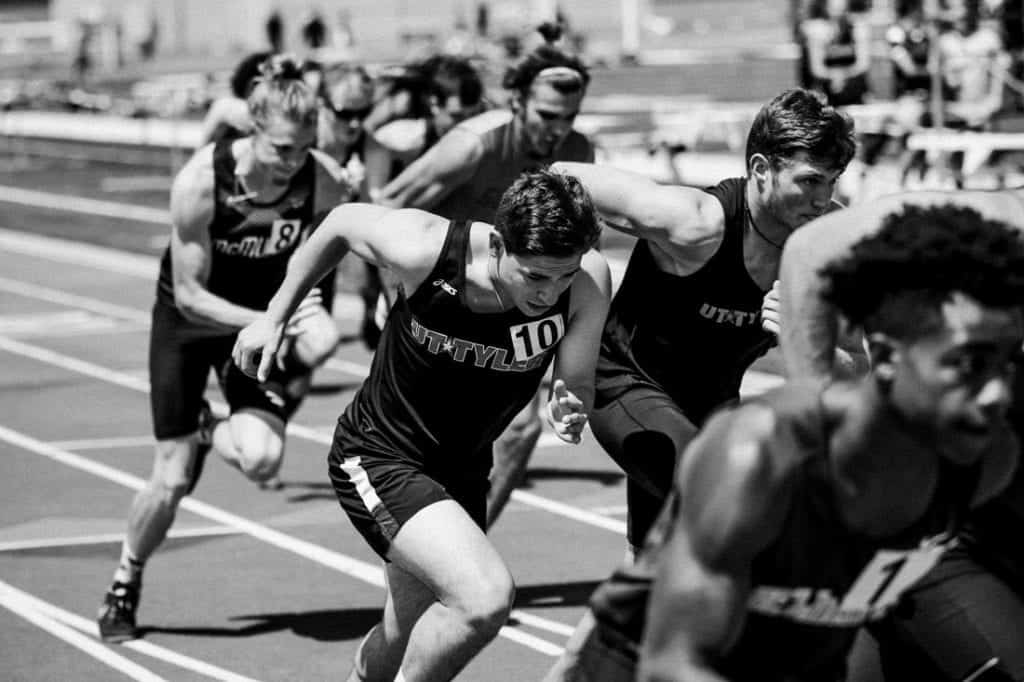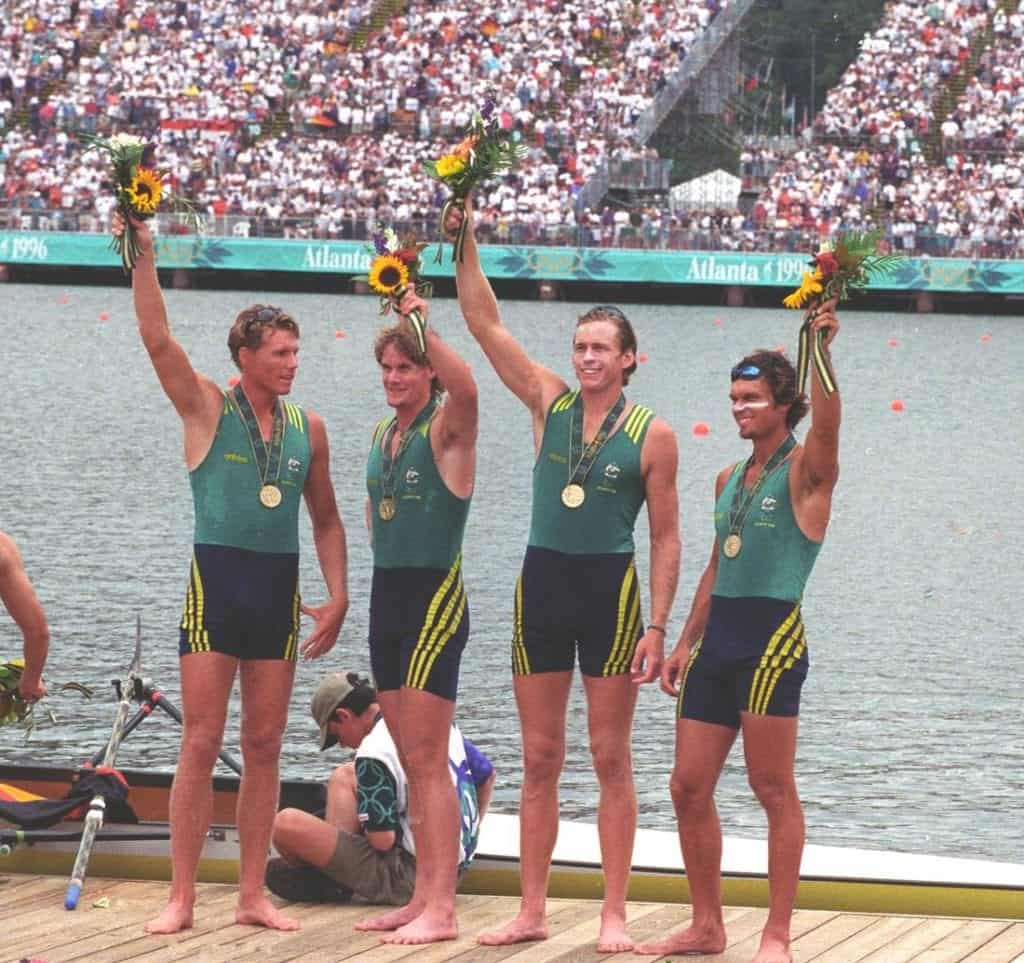Coaches are unanimous in saying their athletes are lacking resilience, they’re not as ‘tough’ as their teams in previous times. And, not just physically tough, mentally tough. But, do todays Gen Y & Z athletes understand toughness? Do they know that the mental framework that lets you complete every training session, perform in a competition, and get you through a 20 second sprint are all unique mental skills? Have they got strategies to rely on when things don’t go to plan in the middle of competition? Are they resilient enough to bounce back from injury? Our goal is to get wise on this tough challenge.
As a coach, you can’t always be there. You won’t be there in the moment during competitions, you might not always be there in training and we’ll explain why there are times when it’s better if you’re not. But, you can make certain, that your athletes know how to make the most of every opportunity that comes their way and what to do when everything may seem to be going against them too.
You can create a competitive advantage for your athletes by explaining mental toughness in simple terms and using a simple equation to ensure they develop those mental skills.
What’s the difference between grit, mental toughness and resilience? Are they interchangeable terms, do they mean the same thing?
Being mentally tough is not the same as having grit.
Grit is defined as the long-term pursuit of a goal and the ability to stick it out. Grit is a great quality to have, but mental toughness is critical because it refers to performing under pressure and in the moment, when it matters the most, not at training or in preparation but in competition when everyone is watching.
“Having effective strategies means you can break down long term goals into short term goals and then execute efficiently and successfully every time. This is a simple strategy that mentally tough athletes often do without even realizing they are doing it.”
Outlining another important piece of the puzzle, Hanson explains why resilience is important and what it looks like in the sporting sphere. He says, “resilience will keep an athlete in the game long-term. It’s the ability to come back from injury or overcome an obstacle during the competition. There are skills that sit around resilience and they’re all teachable. Athletes can become resilient. They can start with the little things and when a big obstacle appears in their way, they’ll know exactly what to do to reach their end goal regardless of circumstance.”
So, with this in mind, a useful question for Coaches to start with is ‘how do you develop mental toughness’ and facilitate your athletes learning all the skills that sit around it?
4 x Olympian and 3 x Olympic medalist, Bo Hanson has developed ATHLETE TOUGH, a Handbook and Video Series to give you the answer.
He says, “I know firsthand that mental skills are the difference between winning and competing in sport. They shape the way you approach challenges and ultimately your life. In my coaching, I’ve always been asked for my input into mental skills programs, so I developed the ATHLETE TOUGH™ program and use the W.I.S.E. equation or system, to make the process simple for busy coaches.”
“Fundamentally, I also believe a large part of your behavior, including your mental toughness, is a function of your environment. If you’re exposed to a certain environment or culture, then this ultimately determines what behaviors you exhibit and how resilient you’re able to become.”
In fact, resiliency and mental toughness are skills, something that can be learnt and taught. Let’s break it down a little further and look at how ATHLETE TOUGH can assist you in solving the problem of mental skills in your athletes.
Get W.I.S.E and get ATHLETE TOUGH
Mental toughness is a defining factor in achieving success, and extensive research and experience backs us up.

At Athlete Assessments, we have been using a specific set of proven strategies developed over time to assist Coaches and athletes across the world improve their mental toughness and resiliency. And what we’ve discovered from doing this is that there are 4 key elements that all tough athletes implement daily. What are they? Let us help you get WISE.
W – Your Big WHY?
Being ATHLETE TOUGH is about finding your motivation to keep going when things get hard. And motivation is all about finding a big enough reason why you do what you do. When sport gets tough, you have to be deeply connected to the reasons why you play your sport, if you’re going to push through the difficult times and get a positive result.

When motivation wavers, most athletes find an easy option by taking short cuts or pulling back on their effort. They either forget why they’re doing their sport or their reasons for doing their sport aren’t compelling enough to give 100% effort. This is the opposite of being ATHLETE TOUGH.
Athletes are involved in sport for many different reasons. It really doesn’t matter what your reasons are, so long as you know what they are.
“Speaking from experience, my own motivation to be involved in rowing was to become an Olympian. It was to represent my country, then to win an Olympic Medal,” Hanson says.
“These reasons were very “task” focused and material in nature. I learnt as time went on, how my motivations evolved and by the time I finished my rowing career, my reasons for rowing included wanting to be part of a great team, enjoying meaningful relationships with my team members and coach. I enjoyed the actual feeling of rowing in perfect time with my crew and moving the boat fast.”
“For me having a goal sharpened my focus and directed my energy to not just “enjoying” my sport, but to lifting my current level of performance. Does having a goal all of a sudden mean I become fixated on outcomes only? Not at all, it simply means I could take my outcome and develop a process for achieving it. It means knowing ‘Your Big Why’.”
I – Identity
The best athletes in the world are resilient. They know how to bounce back from challenging situations. But resiliency isn’t just something they either have or don’t have, it is a skill that they’ve learnt, and it is a skill that can be taught.

Essentially, resilience is our ability to adapt or bounce back when we’re challenged. People who are resilient don’t dwell on failures, they don’t quit when things get tough, they rise to the challenge, learn from their mistakes and keep going.
Take the New Zealand All Blacks rugby team for example. Perhaps one of the world’s most successful sporting teams, the All Blacks have demonstrated sustained success and world class standards day after day, week after week, year after year. They know how to handle pressure and train to win at the highest level as a team and they’ve proved this.
They’re setting the example that champions do extra. That is what this team does – extra. And each and every team member has what we call a Tough Identity.
There’s a quote that goes, “No one looks after the All Blacks – the All Blacks look after themselves” and this is a perfect example of how a tough athlete thinks.
According to author James Kerr who wrote Legacy, a book about the All Blacks, “a values-based, purpose driven culture is a foundation of the All Blacks’ approach and sustained success.”
When researching their competitive advantage, he determined that the key was their ability individually and as a group to manage their culture and central narrative by attaching the players’ personal meanings to a higher purpose.
“It is the identity of the team that matters – not so much what the All Blacks do, but who they are, what they stand for, and why they exist,” he said.
Kerr said the challenge was to always improve, to always get better, even when you are the best. Especially when you’re the best.
The All Blacks know what it means to be tough. They truly believe they’re tough, and they live that every day. It has become part of who they are, it has become their identity and that is why they continue to succeed and progress in their sport.
Essentially having a tough identity is knowing that actions speak louder than words, and tough athletes take action.
- They know that building resilience is like building any other muscle and they need to work at it every day;
- They know that when they suffer a setback, it will only add to their success story;
- Tough athletes identify themselves as being tough and understand its part of who they are not just what they do;
- They train hard to become technically and physically prepared for pressure situations and they rise to the occasion;
- They know their Big Why;
- They earn what they get and value that the best rewards come from their own efforts;
- Tough athletes set goals;
- They encourage others;
- And they have their own measures of performance.
Most importantly, tough athletes never give up, never quit on their team and never quit on themselves.
S – Strategies
When we think about tough people the US Navy SEALs certainly come to mind. Their resilience is renown and they are undoubtedly some of the most mentally tough people in the world.

How have they become so good at what they do? According to them it’s because they have a simple set of strategies that they follow consistently.
Mental toughness and resilience are a key quality in athletes that are revered and successful in their chosen sport. And like the SEALs, those who excel in what they do have strategies in place and are disciplined enough to work on themselves and perfect these strategies day in and day out.
Hanson agrees and says toughness can be taught and it can be learnt through using a proven set of strategies just like the ones outlined in ATHLETE TOUGH.
“One way to think about developing toughness is to compare it to developing a muscle. You would go to the gym daily, work on the muscle and over time and with proper technique, you would achieve muscular development,” he said.
“It’s the same concept for developing mental toughness. You’re training to become technically and physically prepared for when you’re in the heat of the moment and the pressure is on.”
“You do this by exposing yourself to pressure, challenging your current abilities and increasing your own performance standards. Doing this every day takes discipline and it is also uncomfortable. But, being uncomfortable is the lifeblood of ATHLETE TOUGH™ness.”
Hanson explains that the Coach is someone who’s going to be hugely instrumental in this process of developing mental toughness.
“This is one of the main reasons ATHLETE TOUGH was developed,” he said.
“It was written for Coaches and athletes in a way they could understand and relate to because the Coach is the most influential person in an athlete’s life, within sport and outside of it too.”
Research conducted as part of the 2008 Canadian Olympic Study actually showed that Coach-athlete relationships significantly impact athlete performance.
“The purpose of the study was to identify the factors contributing to a successful and in some cases, unsuccessful performance, from both the Coach and athlete’s perspectives,” Bo said.
“The study consisted of interviewing 27 Olympic and Paralympic athletes and 30 Coaches. These interviews were then analyzed and five key themes emerged. The Coach-athlete relationship was considered the most critical factor, and this is exactly why it’s a big part of the Coaches role to help their athletes develop their mental toughness.”
A more recent study on super elites proved the same thing. According to findings presented in November 2015 at the World Class Performance Conference in London, super elites felt that their Coaches fully satisfied their emotional needs by acting as friends, mentors and unwavering supporters—in addition to providing superb technical support. High-performing athletes who were not medaled did not feel that way.
“At Athlete Assessments we often speak about the importance of a quality Coach-athlete relationship and how this can be used to improve athlete performance,” Bo said.
“Athletes who are able to form close attachment to their Coaches are more likely to feel secure in exploring their role in sport, pushing their boundaries, taking risks to improve performance and being able to confidently give 100% effort,”
“The same applies for children who have responsible parents who provide this environment and support. It is no wonder the Coach athlete relationship is a performance factor which extends beyond all other factors. It is literally hardwired into us from our very first hours of being born.”
ATHLETE TOUGH goes into depth on how Coaches can achieve this.
E – Environment
There has been a lot of research done into successful athletes who have had to “struggle” to some degree. It’s this struggle that has helped them form a more resilient approach to their sport mentally. In fact, many agree that without the struggle, toughness cannot develop.

But many elite athletes have access to practice and competition environments which are first class, and they want for very little, which is great, but it can actually be quite disabling when it comes to developing mental toughness.
An enabling environment is one that helps us become ATHLETE TOUGH. It’s an environment marked by a level of struggle, discomfort, independence to make choices and decisions and the need for athletes to do things for themselves.
Today’s millennial athletes are still learning to understand that while everyone has resilience to a certain degree, it’s not a mythical quality some are born with and others without, mental toughness is still a skill. Like any other skill there is a specific strategy to execute it well and it needs to be practiced daily. It needs to be trained in the same way you would train a muscle in the gym.
Millennial athletes have been brought up in a different environment to athletes of years gone by. This different environment has essentially shaped them, their behaviors, their level of mental toughness, discipline.
Hanson explains, “when I rowed at the 1996, 2000 and 2004 Olympics, I trained at a facility called the University of Technology Sydney, Haberfield Boat Club. It was, and still is, based on the shore of Sydney Harbor in a semi protected cove.”
“The water in this area is shared with many other boats, sailing vessels, ferries and commercial boats. It was a rough water environment and there were very few days where we had the place to ourselves,”
“I learnt rowing techniques to row in difficult and unpredictable conditions based on this environment. I developed skills in steering the boat without having to constantly think about it. I learnt to manage my own safety on the water and ultimately, this environment made me a better athlete,”
“Our Boathouse was also old. Built in 1925 with extensions and redevelopments in 1993, it still leaked when it rained and was a very tight space to store equipment. We had to keep it clean and tidy otherwise there was no room to move. Everything we had in our Boathouse was functional and not there for aesthetics,”
“We cleaned and looked after our own boats and oars and did it so well that even today there are boats in the Boathouse from when I was there 10 years ago, and they are still in racing condition,”
“Most importantly, we had a phenomenal Coach, Tim McLaren. He was busy and often coaching up to 20 rowers in a session, so I never had his undivided attention. However, during each practice I had his attention for set periods which he gave equally to all his rowers. It was up to me to maximize his words of coaching. When he told me to make a change, I knew I had to make a change immediately as he did not have time to remind me,”
“I had to be accountable to myself and my crew to make improvements. Of course, this taught me great lessons, but it was not easy,”
“This is just how it was, but this is also part of the reason why I was able to become ATHLETE TOUGH.”
Undoubtedly, the environment, conditions, and the way you react to them, will be a determining factor in your ability to develop toughness as an athlete.
The Terms That Define Toughness
Mental toughness is at the heart of peak performance and to develop it in an athlete, a coach must be very clear on the terms. In this video Hanson explains how grit, resilience and mental toughness differ from each other, work together and build an athlete’s capacity to perform.
Do you want to be ATHLETE TOUGH?
In summing up, the ATHLETE TOUGH program shares Hanson’s own proven strategies on how to become and stay mentally tough.
He has already used the strategies outlined in his ATHLETE TOUGH to help more than 700 teams across 41 different sports in several countries achieve sporting success.
Throughout the program Hanson shares his knowledge with both the Coach and athlete in mind. The goal? To get you to take action so you can really learn how to build mental toughness and resilience. Hanson teaches you HOW to become, and stay, ATHLETE TOUGH.

Join the community of coaches and athletes using our PROVEN program for becoming and staying ATHLETE TOUGH. Head to athletetough.com for more information!
At Athlete Assessments we’re here to provide you with excellence in service and to help you be your best. If there is anything we can do to be of service, don’t hesitate to contact us.




